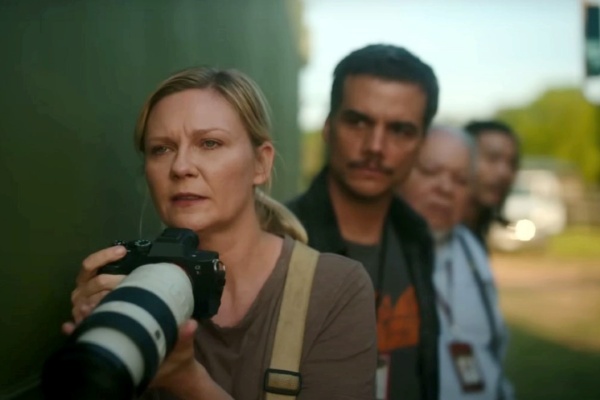A somewhat oblique and unconventional courtroom drama about the intersections of legality, spectres of neocolonialism and the plight of immigrant mothers which will require some patience, but Diop shows that she is not afraid to take narrative and stylistic risks.

Review #2,539
Dir. Alice Diop
2022 | France | Drama | 122 min | 1.85:1 | French
Not rated – likely to be PG13 for some mature themes
Cast: Kayije Kagame, Guslagie Malanga, Atillahan Karagedik
Plot: Rama, a novelist who attends the trial of Laurence Coly at the Saint-Omer Criminal Court, uses her story to write a modern-day adaptation of the ancient myth of Medea, but things don’t go as expected.
Awards: Won Silver Lion – Grand Jury Prize (Venice)
International Sales: Wild Bunch
Accessibility Index
Subject Matter: Moderate – Crime & Legality; Mother & Child; Identity & Neocolonialism
Narrative Style: Straightforward
Pace: Slow
Audience Type: General Arthouse
Viewed: Screener
Spoilers: No
Although the film didn’t quite resonate with me entirely, Saint Omer is certainly a work to get behind because it dares to take risks, both narratively and stylistically.
From Alice Diop, a documentarian who made films such as On Call (2016) and We (2021), Saint Omer is her first fiction feature that is somewhat oblique and unconventional as a courtroom drama. It eschews rapid-fire dialogue or tense cross-examination for a more stately, elegant, and some might say, elegiac tone.
In an extended sequence involving the judge and the accused, we become observers of legality at work, though not quite as banal or sharply satirical as that of the more superior Court (2014), but nonetheless striking in its minimalism.
The accused, Laurence Coly, an intelligent young Senegalese woman who killed her child, is the center of attention, visually as a Black woman in a sea of Whites (a contrast that Diop emphasises) and also figuratively as an immigrant mother haunted by the spectres of neocolonialism—well, French law has little vocabulary for describing and understanding a crime that is far removed from its dominant cultural context.
“Her loneliness was so palpable that she could almost touch it.”
Rama, a young Black and pregnant writer who attends the hearings for research purposes, finds herself drawn away from the ancient myth of Medea (Diop cheekily uses an excerpt of Pasolini’s 1969 work of the same name in her film) that she hoped the trial would inspire her to write about.
Instead, it sparks an existential crisis that leads to a deeper soul-search for her identity, as well as an understanding of the fractured relationship she has with her mother. In that regard, Laurence becomes both a ‘role model’ and a cautionary tale.
While facts take precedence in crime and punishment, we often forget about trying to walk in the shoes of the disenfranchised—to whom is justice really served?
Grade: B+
Trailer:
Music:












[…] recalls the more austere Saint Omer (2022) by Alice Diop, also about a woman on trial, but Triet’s work is as much about legality as […]
LikeLike
[…] a terrific documentary about a clinic in the Parisian suburbs that caters to immigrants, and Saint Omer (2022), a legal drama about the trial of a black woman accused of killing her baby, We is […]
LikeLike